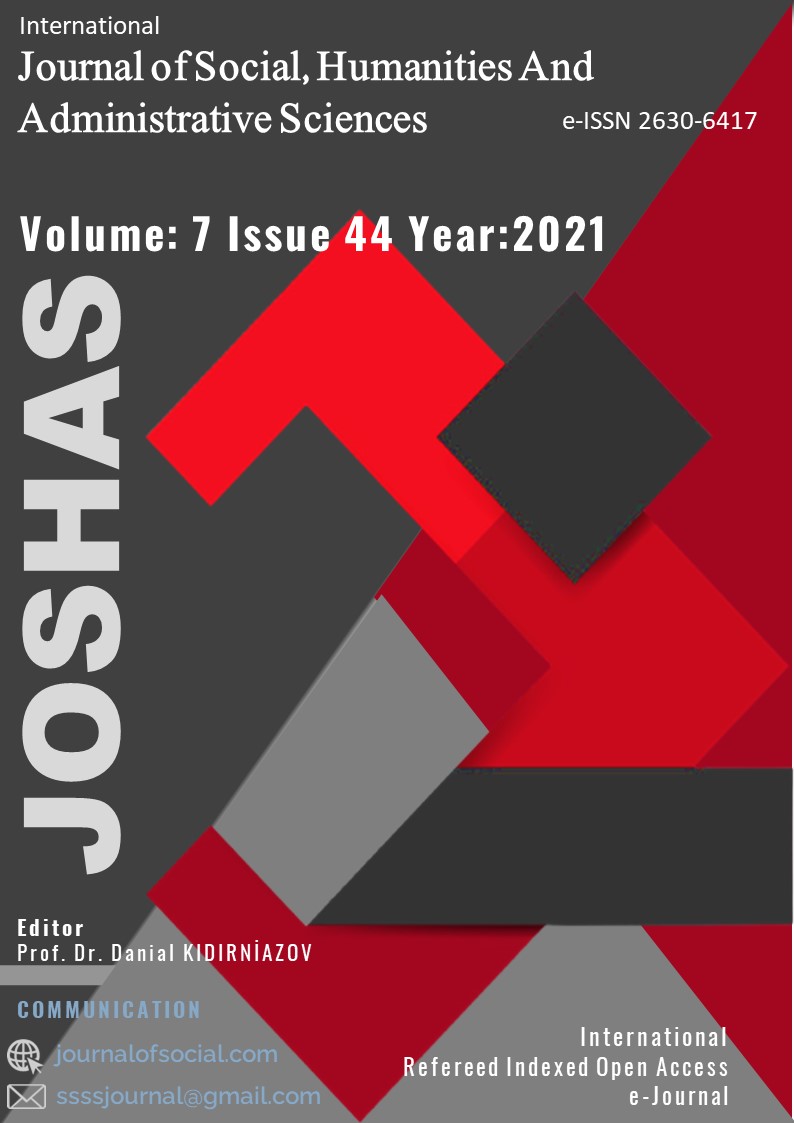Author :
Abstract
Bir toplumun ilim sahasında önde gelen âlimleri, bilginleri o toplumun değişik alanlarda ilerleme kaydedebilmesinin en esaslı unsurlarıdır. Toplumun gerek doğru bir şekilde yönlendirilmesinde, gerekse sağlıklı bilgilerle manevî ve maddî hayatını düzenlemesinde âlimlerin sundukları katkıyı görmezden gelmek, büyük bir talihsizlikten başka bir şey değildir. Toplum ve insan hayatına bu derece önemli katkılar sunan ilim sınıfının, büyük bir saygıyı hak ettiği de şüphesizdir. Ancak her meselede olduğu gibi âlimlere saygı meselesinde de ifrat ve tefrit söz konusu olabilmektedir. Kimileri saygının üst sınırını fazla yükseltip âlimleri, zaman zaman peygamber konumuyla eşdeğer bir makama yerleştirirken; kimileri de saygı konusunda kusur etmekte, onları tamamen sıradanlaştırıp acımasızca eleştiri tahtasına oturtabilmektedir. Hâlbuki bahsedilen iki yanlış eksen arasında bir dengede durmak, adalet ve insaniyetin gereğidir. Yani âlimlere saygıda kusur etmemek, onların ufuk açıcı çalışmalarını takdir etmek ne kadar insanî bir durum ise zaman zaman farkına varmadan düştükleri bazı hataları da yine saygı çerçevesinde nezih bir üslup ile dile getirmek, o derece insanî ve islamî bir haslet olarak görülmelidir. Bahsedilen çerçevede ele alacağımız bu çalışmada, İmam Şafiî’nin “er-Risâle” isimli eserinde, Nisâ suresi 171. ayetle ilgili, farkına varmadan düştüğü bir hataya dikkat çekip, bu tür hususların nezih bir üslupla dile getirilmesinin de ne kadar gerekli olduğunu göstermek istiyoruz. Zira saygıda kusur etmemek esas olmakla beraber, gösterilen saygının birtakım hata ve yanlışlara sevk etmemesi veya düşülen hatalara ses çıkarmaktan alıkoymaması da bir o kadar gereklidir.
Keywords
Abstract
The leading scholars of a society in the field of science are the most essential elements of that society's progress in different fields. It is nothing but a great misfortune to ignore the contribution of scholars in guiding the society correctly and in organizing its spiritual and material life with sound knowledge. There is no doubt that the scientific class, which makes such important contributions to society and human life, deserves great respect. However, as in every other issue, extremism and infringement can also occur in the issue of respect for scholars. While some raise the upper limit of respect too much and place scholars in a position equivalent to the position of prophet from time to time; while others fail to show respect, make them completely ordinary and ruthlessly criticize them. However, it is a necessity of justice and humanity to keep a balance between these two wrong axes. In other words, just as it is humane not to fail to show respect to scholars and to appreciate their seminal works, it should be seen as a humane and Islamic trait to express some of the mistakes they make without realizing it from time to time, in a decent manner within the framework of respect. In this study, which we will deal with in the aforementioned framework, we would like to draw attention to a mistake that Imam Shafii made unwittingly in his work titled "er-Risâle", regarding the 171 verses of Surah Nisa, and show how necessary it is to express such issues in a respectful manner. Because, although it is essential not to make mistakes in respect, it is equally necessary that the respect shown should not lead to some mistakes and wrongs, and that it should not prevent researchers from making a sound about the mistakes made.
Keywords
- Apaydın, H. Yunus, “Kerhî”, DİA, 2002 Ankara.
- Beğavî, Ebu Muhammed Hüseyin b. Mes’ud, Meâlimu’t-Tenzîl fî Tefsîri’lKur’an, Tahkik: Muhammed Abdullah en-Nemir vd., Dâru Taybe 1417/1997.
- Demircan, Adnan, “Sevr Mağarası”, TDV İslam Ansiklopedisi, XXXVII. C. Ankara 2009.
- Îbni Âşûr, Muhammed Tâhir b. Muhammed b. Muhammed Tâhir et-Tûnîsî, et-Tahrîr ve’t- Tenvîr, ed-Dâru’t- Tûnisiyye, Tunus 1984.
- İbn Kesîr, Ebu’l Fidâ İsmâil ed-Dımeşkî, Tefsîru’l-Kur’âni’l-Azîm, Tahkîk: Samî b. Muhammed Selâme, Daru’t-Taybe, 1420/1999.
- Kurtubî, Ebu Abdillah Muhammed b. Ahmed Şemsuddin, el-Câmi’ li Ahkâmi’l-Kur’an, Dâru’l-Kütübi’l- Mısriyye, Kahire 1384/1964.
- Nas, Taha, İmam Nevevî ve Şafiî Mezhebindeki Otoritesi, İlahiyat Yayınları, Ankara 2016. Nursi, Bediüzzaman Said, Barla Lahikası, Zehra Yayıncılık, İstanbul 2003.
- Nursi, Bediüzzaman Said, İçtiaî Dersler, Zehra Yayıncılık, İstanbul 2005.Nursi, Bediüzzaman Said, Mektubat, Zehra Yayıncılık, İstanbul 2003.Râzî, Fahruddin er-Râzî, Mefatîhu’l-Gayb=et-Tefsîru’l-Kebîr, Dar-u İhyâi’t-Türâsi’l-Arabî, etTebatu’s- Sâlise, Beyrut 1420/1999.
- Şafiî, Muhammed b. İdrîs, er-Risâle (İslam Hukukunun Kaynakları), Çev: Abdulkadir Şener-İbrahim Çalışkan, TDV Yayınları, Ankara 1997.
- URL-1: http://www.dinimizislam.com/detay.asp?Aid=513; Erişim Tarihi: 01.09.2021
- URL-2: https://dergi.diyanet.gov.tr/ makaledetay.php?ID=19716, (Candan, Abdulcelil, Kur'an'ı Yanlış Anlamada Taassub Faktörü), Erişim Tarihi: 01.09.2021
- URL-3: https://www.milligazete.com.tr/makale/845300/mustafa-kasadar/itikadi-sapmalar-1-alimlere-kulluk- sinirinin-otesinde-hak-tanimak, Erişim Tarihi: 03.09.2021
- URL-4: http://www.kuranikerim.com/telmalili/tevbe.htm; (Hak Dini Kur’an Dili, “Tevbe”), Er. Tar. 03.09.2021
- Useymîn, Muhammed b. Sâlih b. Muhammed, Şerh-u Selâseti’l-Usûl, Dâru’s-Süreyyâ 2004.





